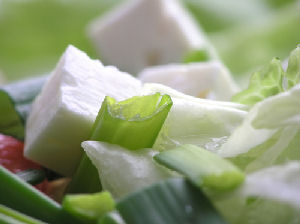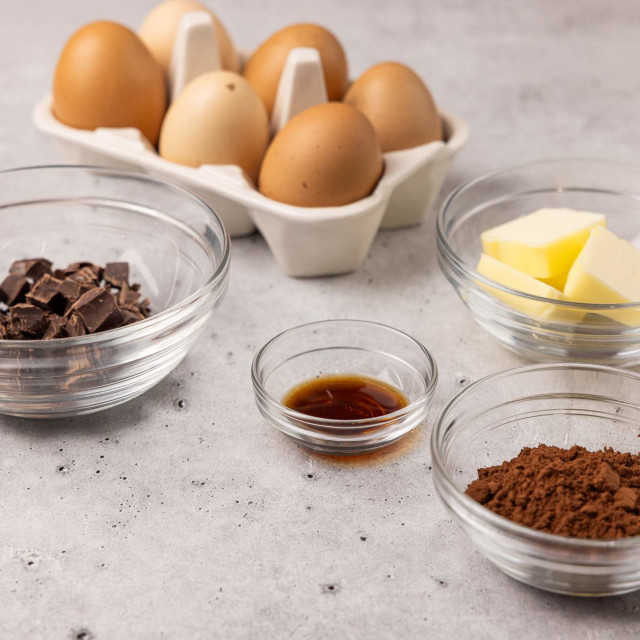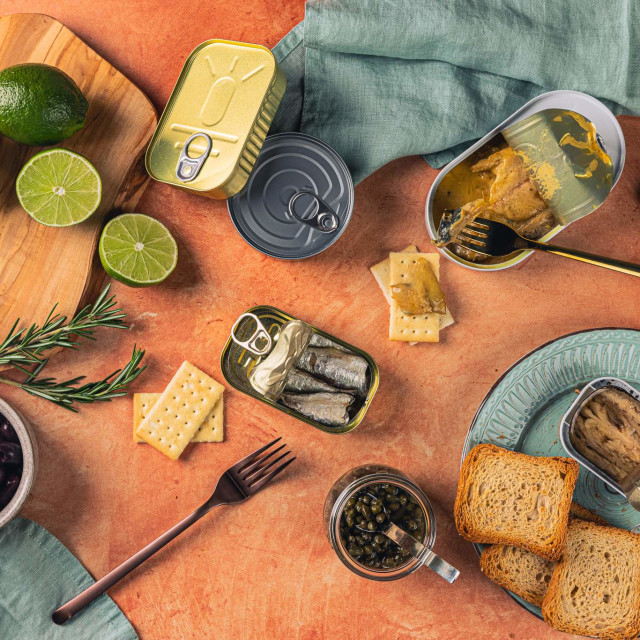Feta
 |
Young feta cheese will hold up to skewering for the grill while the aged variety is best for crumbling.
|
Classified as a “semi-firm” brined cheese, feta is made from the curds of sheep’s milk. Quite often though, it is also derived from goat’s or cow’s milk or combinations of those. Many countries make excellent variations of feta with corresponding differences in taste and texture.
History
Feta production can be traced to Ancient Greece, but it wasn’t until the late 1800s that brine was added as a preservative for worldwide commercial marketing. The process of making the cheese today has changed little over the centuries.
Buying Tips
• Feta is commonly found in jars of brine or oil, and most often cubed or pressed into larger blocks.
• Depending on how long it has been aged, the cheese will be soft-to-hard in texture. Older cheeses are best for crumbling.
• The name “feta,” means it is from . Similar cheeses from other countries cannot claim that name.
• When purchasing from a barrel in a specialty shop, always request that some of the brine be included with the cheese.
• Expect to find a few small holes and cracks in the body of the cheese.
Storage Tips
• Store feta in the original brine and it will keep in the refrigerator for a very long time. As aging progresses, the taste will become stronger.
• When removed from the brine for very long, the cheese will become dry and unusable.
Usage Tips
• Always serve a cheese at room temperature. For feta, remove from the refrigerator about half an hour before serving.
• Rinse with water or soak for a few minutes in milk to remove some of the salty taste.
• Although strong, feta makes a wonderful breakfast condiment. Try it in scrambled eggs (Avga me Feta).
• When serving feta, either as an appetizer course or a main meal, think about selecting a Greek wine as an accompaniment.
• Soak in a good-quality olive oil before adding to salads.
Substitution Tips
• Any crumbly goat- or sheep-based cheese will be an adequate substitute.
Try one of our favorite feta recipes:
Chicken-Feta Pasta
Eggplant-And-Feta Pitas
Feta-Tomato Toppers
Suggested Pairings
Anchovies, breads, cucu





